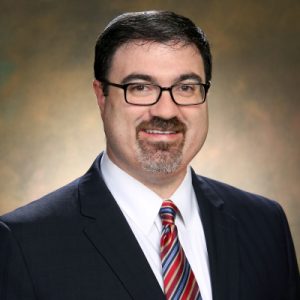The Mishnah relates a lesson about creation: “Human beings mint many coins from the same mold, and the [coins] are identical. But the Holy One strikes us all from the mold of the first human and each one of us is unique.” (Sanhedrin 4:5) I love this text because it reminds me that each of us is unique and that our distinctiveness is a reflection of the infinite nature of God.
Over the past month, I have witnessed the truth of the Mishnah’s teaching emerge through many different conversations. In meetings with B’nei Mitzvah families, wedding couples, lay leaders, staff, community partners, and Temple Beth El members of all ages, I learned the lesson of the Mishnah. Each one of us has stories about why we came to Temple Beth El. Each one of us has memories, experiences, ideals, and ideas. We have similar connections to the synagogue. But we are all unique.
My wife and children recently arrived in Charlotte. As much as I tried to prepare for their arrival, our house remains full of boxes! Unpacking boxes is a perfect metaphor to describe this period of time in the life of our congregation. During this next year (or more), the experience of unpacking is an opportunity for unearthing our valuables and discovering new opportunities and unmet needs.
What boxes am I unpacking?
First, I am trying to discover who is in our congregation. In the past month, I have met hundreds of Temple’s members before and after Shabbat services, in people’s homes, in one-on-one lunch meetings. This is about meeting members face-to-face and learning their stories. I have been asking two questions, repeatedly: what brought you to Temple Beth El? And, what has been meaningful for you? I have also worked hard to get to know the staff and lay leaders and understand them for their strengths, dedication, and shared commitment to our congregation.
Second, I am trying understand our congregation’s history. How did our congregation grow and evolve the way that it did? What are our past achievements? What has been meaningful and sustaining to people? Who has knowledge about the institution and how do we properly capture and preserve the knowledge in this period of transition? I believe our history is helpful in understanding the present and imagining the future.
Third, I am trying to understand how we have worked in the past and co-create a dynamic partnership between clergy, staff, and lay leaders. This has been about building levels of trust and collaboration and emphasizing the importance of Temple Beth El’s culture of learning and self-reflection. Over the past month we held multiple retreats for clergy, staff, and leaders. This was a planned effort to set the proper working foundations and unpack the nuts and bolts of the congregation.
It’s been a busy month since I walked through the doors as Temple Beth El’s new rabbi. I also want to be clear that this process is only beginning. There is more unpacking to do, both literal and figurative. I thank you for meeting Rabbi Klass and me with warmth and a genuine interest in helping us understand the congregation, and for becoming our cultural and historical teachers.




